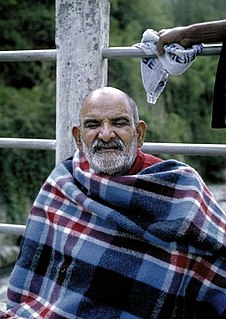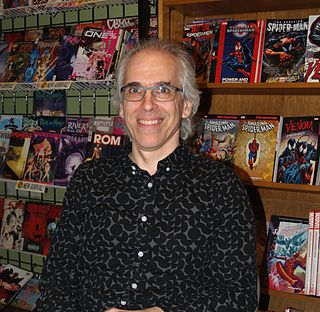A Quote by Bonnie Jo Campbell
We know that we need to explore desire in fiction - many say that the only way a story exists is that a character feels a strong desire - and nature is the place where creatures act on their desires in the most pure way imaginable, so maybe nature also works as a metaphor for whatever emotional troubles my characters have to negotiate. I'm interested in my characters as survivors, and maybe that works best when the old-fashioned notion of humans surviving in wilderness is not too far away.
Quote Topics
Act
Also
Away
Best
Character
Characters
Creatures
Desire
Desires
Emotional
Exists
Explore
Far
Far Away
Feels
Fiction
Humans
Imaginable
Interested
Know
Many
Maybe
Metaphor
Most
Nature
Need
Negotiate
Notion
Old
Old-Fashioned
Only
Place
Pure
Say
Story
Strong
Strong Desire
Surviving
Survivors
Too
Troubles
Way
Whatever
Wilderness
Works
Related Quotes
The facts of nature are what they are, but we can only view them through the spectacles of our mind. Our mind works largely by metaphor and comparison, not always (or often) by relentless logic. When we are caught in conceptual traps, the best exit is often a change in metaphor not because the new guideline will be truer to nature (for neither the old nor the new metaphor lies "out there" in the woods), but because we need a shift to more fruitful perspectives, and metaphor is often the best agent of conceptual transition.
The nature of acting is that one is many characters and jumps from one skin to another as a way of life. Sometimes it's hard to know exactly what all of your characters think at the same time. Sometimes one of my characters overrules one of my other characters. I'm trying to get them all to harmonize. It's a hell of a job. It's like driving a coach.
Celebration is not because some desire is fulfilled - because no desire is ever fulfilled. Desire as such cannot be fulfilled. Desire is only a way to avoid the present moment. Desire creates the future and takes you far away. Desire is a drug; it keeps you stoned, it does not allow you to see the reality - that which is herenow.
The six rules of maybe 1. respect the power of hope and possibilites. Begin with beleif. Hold onto it. 2. If you known where you want to go, you're already half way there. Know what you desire but, more imporantly, why you desire it. Then go. 3. hopes and dreams and heart's desires require a clear path-get out of your own way 4. Place hope carefully in your own hands and in the hands of others 5. Persist, if necessary 6. That said, most importantly-know when you've reached an end, Quit, give up, do it with courage. Giving up is not failing-it's the chance to begin again.
I'm such a product of my media diet... it's interesting that you say what I do is observational. It's observational as far as it goes - to the extent that I observe media closely. Kriota might have a better sense of this. I don't always have the best sense of how human nature works, but I certainly know how to dismantle representations of characters.
Man wants to see nature and evolution as separate from human activities. There is a natural world, and there is man. But man also belongs to the natural world. If he is a ferocious predator, that too is part of evolution. If cod and haddock and other species cannot survive because man kills them, something more adaptable will take their place. Nature, the ultimate pragmatist, doggedly searches for something that works. But as the cockroach demonstrates, what works best in nature does not always appeal to us.
I was really interested in this ability for others to create virtual memories for us. In "The Cartographers" I explore this through Adam Woods, and the company he works for, which produces virtual memories that people can beam into their consciousness. While the technology is sci-fi, the story is also a metaphor for the way love relationships create memories in our minds.
The only thing I say I consciously do is I definitely make an effort to work on different styles of music: not working on too many post-rock bands, or too many heavy bands, or too many folk bands, or just whatever. I have no desire to be known as somebody that just works on a single style of music and would rather avoid it, actually.
The desire for total happiness and for ultimate freedom lies dormant in everyone. It is in the form of a seed. It is like a seed that contains a tree within it. In the same way, the fulfillment of man's ultimate desire is hidden in his very nature. In its perfectly developed state, it is our nature to be happy, to be free. Our real nature is the only thing that is true, and only perfecting it can bring complete satisfaction.





































